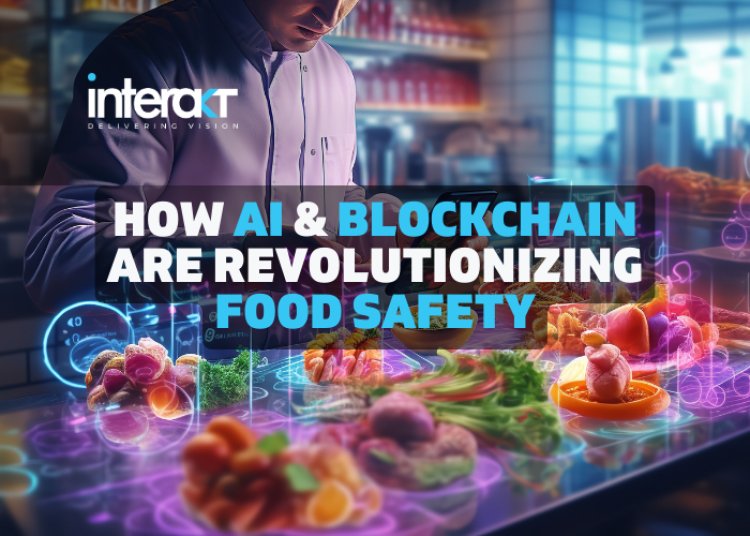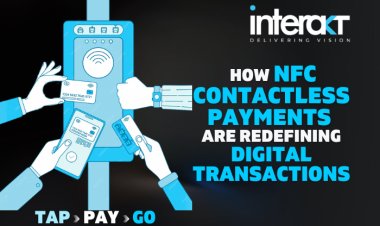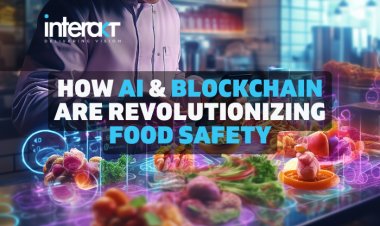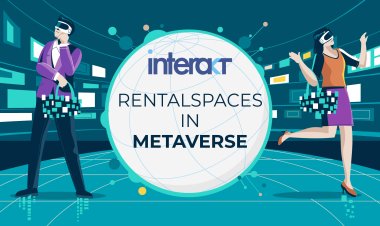How AI & Blockchain Are Revolutionizing Food Safety
On this World Food Safety Day, it's crucial to reflect on the advancements in technology that are helping ensure the food we consume is safe. Among the most promising technologies making significant strides in food safety are Artificial Intelligence (AI) and Blockchain. These innovations are not only transforming the way we monitor and manage food safety but also paving the way for a more secure and transparent food supply chain.

Food safety is a global concern. The World Health Organization estimates that 600 million people—almost 1 in 10 worldwide—fall ill after consuming contaminated food, and 420,000 die every year. These staggering statistics underline the urgent need for effective solutions to prevent foodborne diseases. Traditional methods, often reliant on manual checks and paper records, are no longer sufficient. This is where AI and Blockchain come into play.
AI: Predicting and Preventing Contaminations
- Enhanced Detection and Analysis: AI algorithms excel at processing vast amounts of data quickly and accurately. In food safety, AI can analyze patterns in data from various sources—such as temperature sensors, shipment records, and production line cameras—to detect potential safety issues before they become problems. For instance, machine learning models can identify anomalies in temperature data that might indicate refrigeration failures. By flagging these issues in real-time, AI helps prevent the growth of harmful bacteria that thrive in improper storage conditions.
- Predictive Analytics: Beyond detection, AI can predict future risks. By analyzing historical data, AI systems can forecast which batches of food are at higher risk of contamination. This allows food producers and regulators to take preemptive action, focusing their resources on the most critical areas.
- Automation and Quality Control:AI-driven automation streamlines quality control processes. Automated systems equipped with computer vision can inspect food products more rigorously and consistently than human workers, identifying defects or contaminants that might be missed during manual inspections. This enhances the overall quality and safety of the food supply.
Blockchain: Ensuring Transparency and Traceability
- Immutable Records: Blockchain technology provides a decentralized and immutable ledger for recording transactions. In the context of food safety, every step in the supply chain—from farm to fork—can be recorded on the blockchain. This creates a transparent and tamper-proof record of a product's journey.
- Traceability and Accountability: With blockchain, tracing the origin of a contaminated product becomes significantly easier. In the event of a food safety issue, blockchain allows for rapid identification of the source, whether it’s a particular farm, processing plant, or shipment. This speeds up recalls and minimizes the spread of contaminated products. Moreover, blockchain's transparency ensures accountability. Each participant in the supply chain—farmers, processors, distributors, and retailers—can be held accountable for their part in maintaining food safety standards. This fosters a culture of responsibility and compliance.
- Consumer Confidence: Consumers today are more concerned than ever about the safety and origin of their food. Blockchain technology allows them to verify the journey of their food products, providing assurance about their safety and authenticity. This can be a significant competitive advantage for brands that prioritize transparency and quality.
Real-World Applications
Several companies and organizations are already leveraging AI and blockchain to enhance food safety. For example:
- IBM Food Trust uses blockchain to improve transparency and traceability in the food supply chain, helping to reduce the time it takes to trace a product from days to seconds.
- Clear Labs employs AI-driven genomic analysis to detect pathogens in food samples, providing a more precise and efficient way to ensure food safety.
- Walmart has implemented blockchain technology to track leafy greens, significantly improving the ability to respond to potential food safety issues.
As AI and blockchain technologies continue to evolve, their applications in food safety will expand. Future advancements may include more sophisticated AI models capable of real-time monitoring and predictive analytics on a global scale, and more integrated blockchain systems that connect all stakeholders in the food supply chain seamlessly.
On this World Food Safety Day, it's clear that AI and blockchain are not just buzzwords but powerful tools that can revolutionize the way we ensure the safety of our food. By embracing these technologies, we can build a safer, more transparent, and trustworthy food system for everyone. Let’s leverage these innovations to make our food supply safer and more secure, safeguarding the health of millions around the world.
At Interakt, we are passionate about harnessing the power of technology to drive innovation in various sector including the agriculture sector. Our cutting-edge solutions integrate AI and Blockchain to enhance traceability, transparency, and monitoring. By partnering with us, businesses can build trust with their customers, ensuring the safety and integrity of their products while fostering a more transparent and secure food supply chain.












